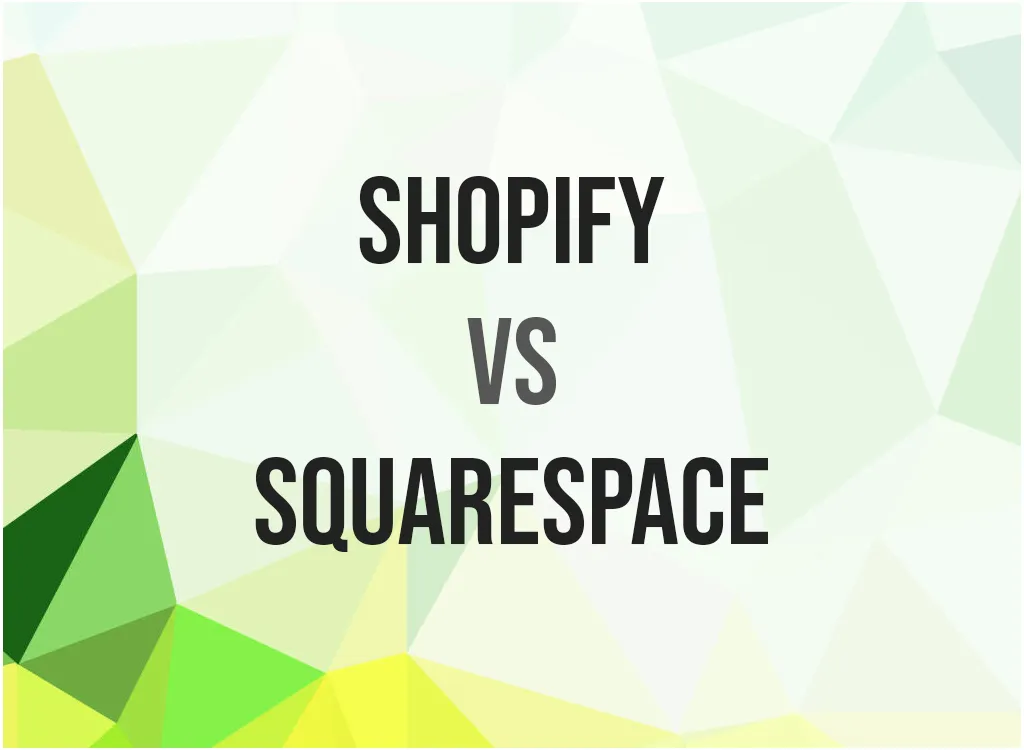Shopify vs Squarespace: Which is Better in 2025?

Picking the best platform to support your digital growth in 2025 can feel very confusing. Shopify vs Squarespace are well-known for offering the top features aimed at those in the field of entrepreneurship, creativity, or online selling. Even with differences in their main goals, both platforms tend to be weighed against each other.
In this guide, you will find an explanation of the main differences in eCommerce, design, SEO, pricing, and scalability, along with a comparison of how they stack up against each other in the Shopify vs Wix vs Squarespace and Wix vs Squarespace vs Shopify discussions.
Shopify Is Built For Selling, Squarespace Is Built For Beauty
The purpose of your website is an important factor that separates Squarespace from Shopify. When it comes to blogs, portfolios, or small brand sites that only sell a little, Squarespace stands out as both stylish and simple to handle. Shopify was designed for online merchants who have selling at the core of their web presence.
Because of features including inventory management, cart recovery, a range of payments, and connections to marketplaces, Shopify is most suited to serious online businesses.
Design Flexibility And Customization
Design features bring Squarespace vs Shopify much closer together. Modern, stylish templates from Squarespace are particularly suited to creatives and those in the service industry.
Conversion and website performance are Shopify’s main priorities. When compared to Squarespace, Shopify doesn’t look as sleek right out of the box, though it gives considerable scope for customization for those who can work with HTML or Liquid.
Read: Why Is A Responsive Web Design Essential In Your Digital Growth Plan?
Ecommerce features: Shopify still dominates
When we assess selling features for 2025, Shopify is far superior to Squarespace. Shopify offers:
- Multi-channel selling (Facebook, Instagram, Amazon)
- Abandoned cart recovery
- Advanced shipping tools
- Third-party app ecosystem
- Global payment and tax tools
SEO tools and marketing support
Both options feature reliable SEO resources, like meta tags, alt text, and the ability to keep URLs clear and simple. Shopify offers more advanced SEO apps, as well as analytics specifically adapted eto -commerce businesses.
Squarespace easily connects with tools like Mailchimp and is particularly good for bloggers and creators, making it stand out among the platforms in the Squarespace vs Wix vs Shopify comparison for content-based sites.
Read: Benefits of Local SEO for Dentists.
Mobile optimization and performance
In 2025, mobile responsiveness is non-negotiable. Mobile-responsive templates are available on both Shopify and Squarespace, but Shopify sites generally load quicker and are created to increase conversions. E-commerce success depends heavily on fast sites because slow loading times reduce sales. If quick speed matters most in your decision between Shopify vs Wix vs Squarespace, Shopify comes out on top.
Pricing and value for money
Squarespace has plans starting at $16/month, its Business option costs $23, and Commerce plans cover $27 to $49/month, all of which offer hosting, templates, and basic eCommerce tools. Shopify costs $39 per month to start, offering advanced functionalities and greater ability to scale up as your business grows. If your goal is selling, Shopify is the better option cost-wise, despite Wix’s lower starting price.
App and integration ecosystem
This is where Shopify shines. Because there are over 8,000 apps in the Shopify App Store, from marketing to shipping to reviews, you can configure your store precisely how you want. For integration support, Squarespace is limited to mainly essential apps. Among Wix vs Squarespace vs Shopify, Shopify is the unquestionable leader in offering customization and scalability options.
Customer support and resources
Shopify offers customer care that is always open via live chat, email, or phone, with a rich help center and supportive partner network in addition to this. Although Squarespace supplies 24/7 email support and live chat only during normal business hours, its support depth cannot rival Shopify’s when dealing with larger or more complex ecommerce needs.
Scalability and business growth
When planning for the future, the difference between Shopify vs Squarespace is mainly about how much your business can grow. The ability to match small businesses with major enterprises is supported by Shopify’s scalable infrastructure, a vast range of apps, and options for multiple users. New Squarespace users may not find any restrictions, but as you grow, the platform reveals some limitations.
Conclusion
Your choices between Shopify vs Squarespace should be driven by your goals in 2025. Those most concerned with attractive design, rich content, or operating a compact shop are well-served by Squarespace. If you are committed to eCommerce, intend to scale up, and rely on comprehensive sales tools, Shopify continues to be the best fit.
The platforms provide their strengths, but Shopify still ranks highest for online retail.
Contact Run Marketing today and let us help you build a website that works as hard as you do.
